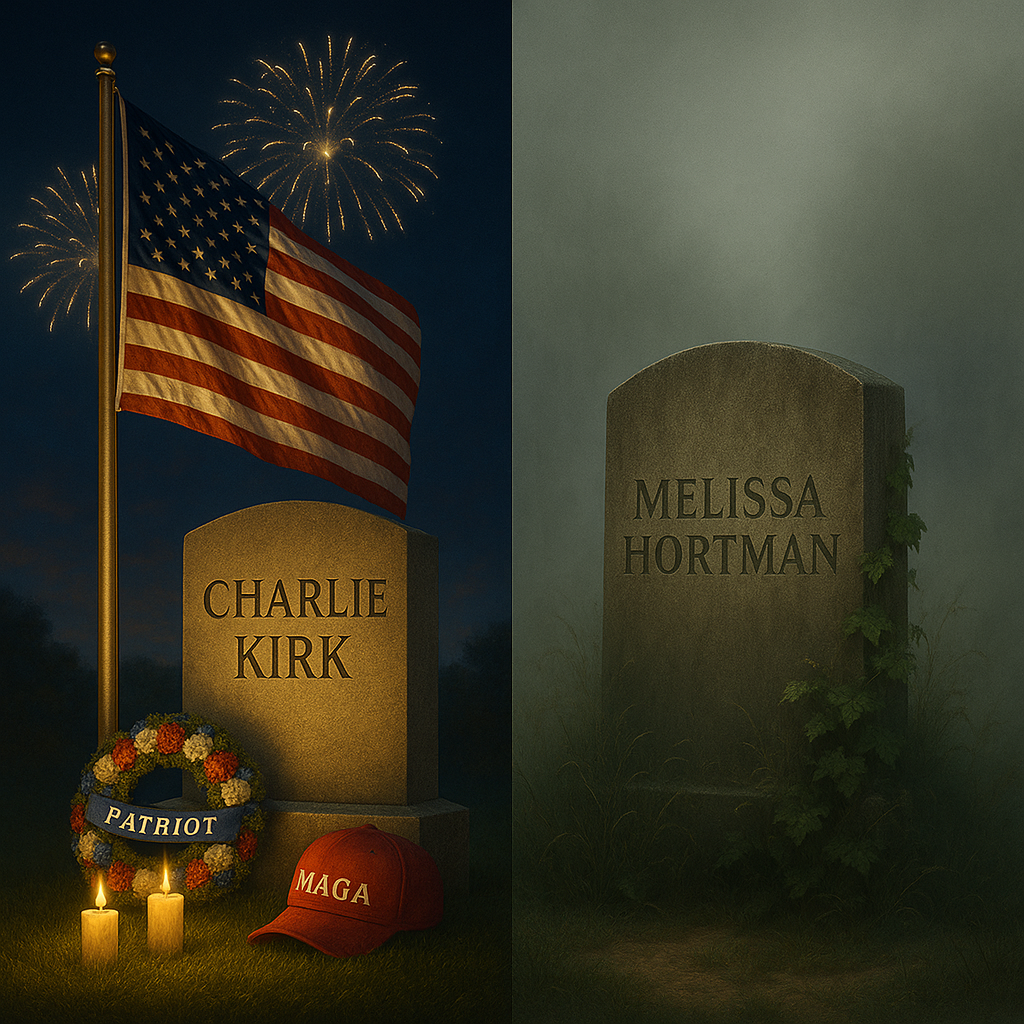
Donald Trump has made it official: in his America, even death is partisan. The President of the United States—charged with representing all citizens—has reduced national mourning to a loyalty test. It is an obscenity against democracy.
When Charlie Kirk was assassinated, Trump responded with speed and theatrics. Flags lowered nationwide. A “Day of Remembrance.” Praise from the Oval Office. Kirk, a professional demagogue who thrived on division, was exalted as a national martyr.
But when Melissa Hortman, former Speaker of the Minnesota House, was slaughtered in a politically motivated attack—her murder a chilling assault on democratic life—Trump looked the other way. No flags. No proclamations. No spontaneous compassion. Asked why, he shrugged: he didn’t “know her.” He said no one “asked.”
That excuse is not just hollow—it is grotesque. The President does not need a memo from a governor to recognize political assassination. The duty is automatic. The silence was intentional.
This is necropolitics in its ugliest form: the state deciding which deaths matter and which do not. Trump chose to honor the death of an ally and spit on the grave of an opponent. In doing so, he gave tacit permission for political murder to become just another weapon in America’s civil war of attrition. He has said, without saying: Kill my enemies and you will be met with indifference. Kill my friends and you will be canonized.
This is not governance. This is authoritarian rot, dripping from the highest office. It is the same perverse logic that animated tyrants of the last century—when loyalty to the leader determined whether lives were celebrated or erased.
Every American should feel a visceral chill. Because if Trump can wield remembrance like a cudgel, if he can divide the dead into “ours” and “theirs,” then the rest of us are nothing but pawns on his sacrificial altar. Today it’s Melissa Hortman. Tomorrow, it could be anyone who dares to dissent.
Trump’s selective mourning is not just cruel—it is civilization-corroding. It undermines the core idea that democracy belongs to everyone, not just the cult of one man. It signals that the state itself has been captured by a faction so intoxicated by vengeance that even the dead are drafted into the culture war.
This is not a presidency. It is a desecration. And the longer we tolerate it, the closer we inch toward the abyss where politics becomes bloodsport and memory itself is rationed to the loyal.
History will mark this as shame. The question is whether America will stop it before shame becomes our destiny.